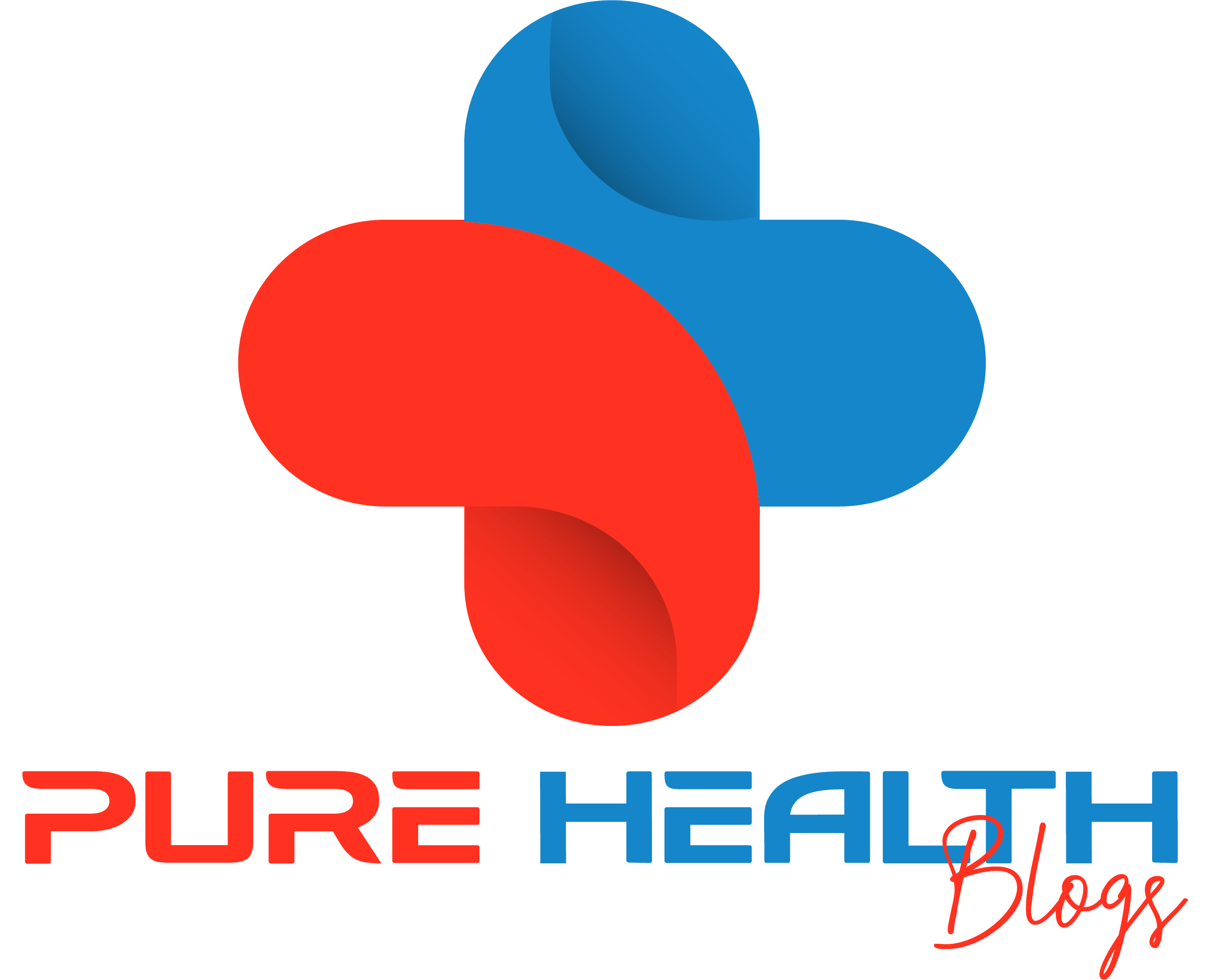Diet & Nutrition
Matcha Vs Coffee: Which Drink Fuels Your Day Better
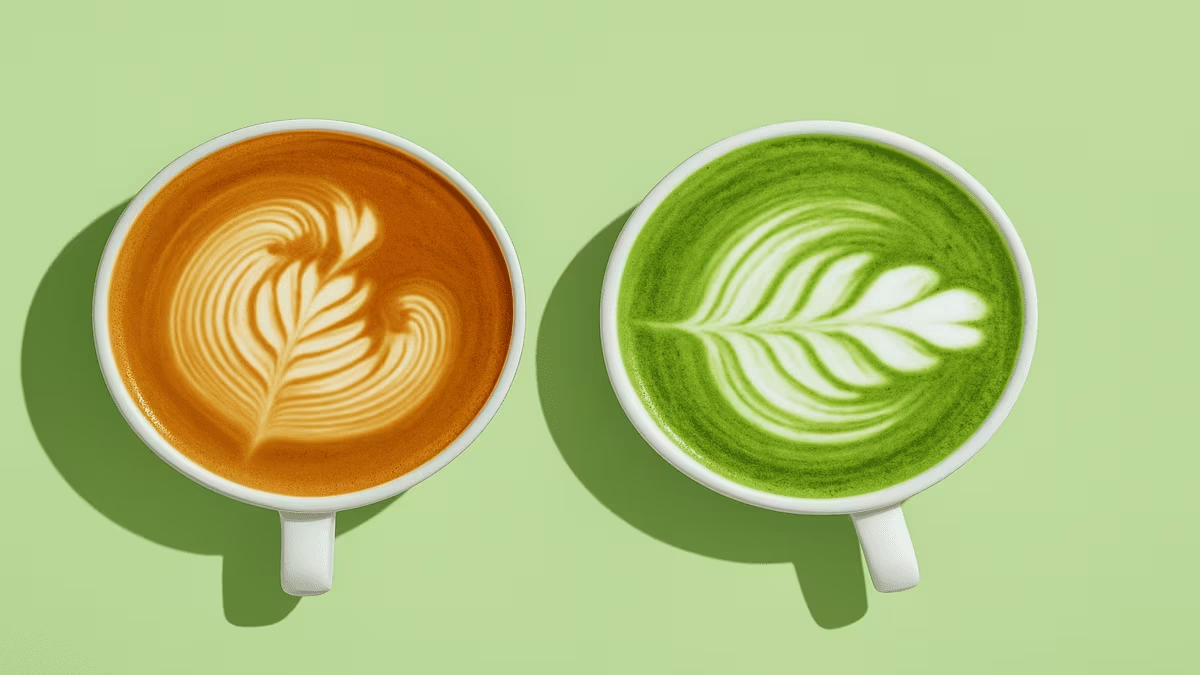
Imagine starting your day with a hot drink that not just will give you energy but will also fuel up your body. That’s where many are torn: matcha vs coffee. While both are popular morning boosters, which one takes the prize for health and energy? Matcha- a bright green powdered tea from Japan- and coffee- the world’s favorite drink, made from roasted beans- promise distinct benefits. In this post, you’ll learn how much caffeine they contain, their health benefits, possible risks, and how they affect long-term energy. We’ll break down research with evidence to help you to decide based on your lifestyle. Whether you’re looking for jitter-free focus or a bold kick, understanding matcha vs coffee can revolutionize your routine.
What is Matcha?
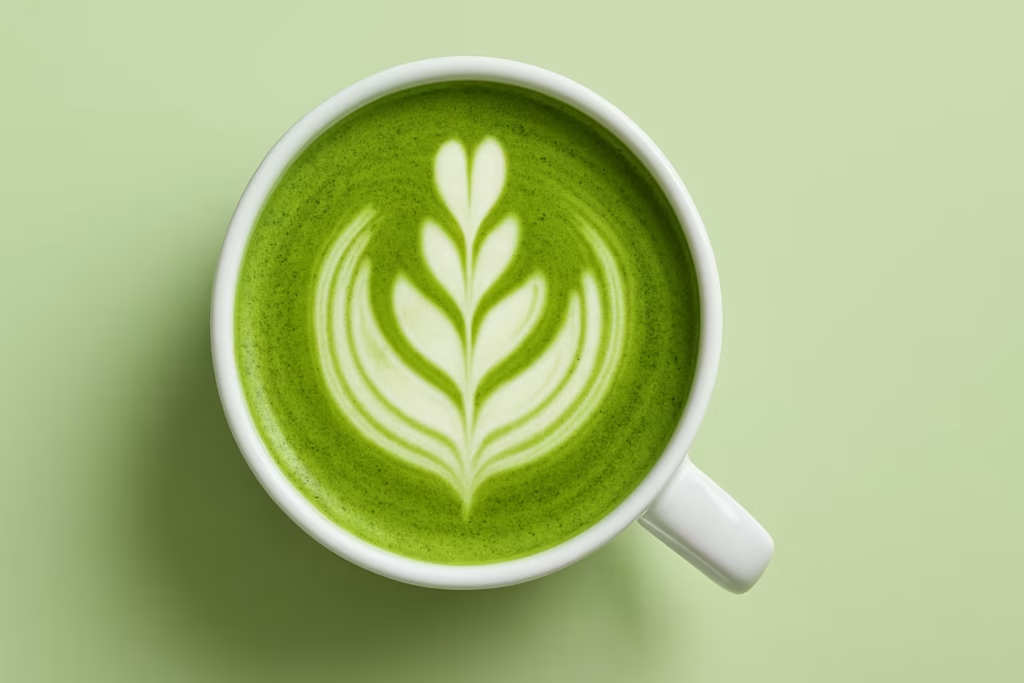
Matcha is a very finely ground powder derived from the shaded green tea leaves and is originally from Japan. Unlike regular Melissa tea or green tea , matcha comes from the whole leaf, which means you’re getting the most nutrients.
Origins and Preparation of Matcha
Matcha originated during the ancient Japanese tea ceremonies. Farmers shade tea plants for weeks before harvest, which increases chlorophyll and amino acids such as L-theanine. The leaves are steamed, dried, and ground into a powder by being crushed with stone. To serve, mix 1-2 teaspoons (~2 grams) into hot water, for a foamy beverage. Due to this process, it retains antioxidants, so matcha is a powerhouse.
Nutritional Profile of Matcha
Matcha contains vitamins A, C and E, fibre and potassium. It’s a great source of catechins, specifically EGCG, which combat inflammation. A serving counts 38-88 mg of caffeine content, less than caffeine coffee but coupled with L-theanine for calm alertness. Studies have found matcha helps maintain cognitive function under stress.
What is Coffee?
Coffee is made from roasted coffee beans from the Coffee plant, species arabica and robust primarily. It’s brewed all over the world, from drip to espresso.
Origins and Preparation of Coffee
Coffee was grown in Ethiopia and spread around the world. Beans are picked, roasted, ground and brewed with hot water. Makes it in a variety of ways: French press for full-bodied flavor or pour over for clarity. An 8-ounce cup of coffee usually takes 10-15 grams of ground.
Nutritional Profile of Coffee
Coffee has antioxidants such as chlorogenic acid, which may reduce risk of diseases. It has very few calories, but it has magnesium and B vitamins. Caffeine content varies from 96 milligrams per cup, which gives a jolt of energy. Research has linked coffee to lower risks of diabetes and Parkinson’s disease.
Caffeine in Matcha vs Coffee: A Detailed Comparison
Caffeine is the main reason for the popularity of both drinks. But how much caffeine is in matcha vs coffee? Let’s break it down.
How Much Caffeine in Matcha?
Matcha has 19-44 mg of caffeine per gram. Standard 2 grams delivers 38-88 mg. This is higher than regular green tea (30-50 mg per cup) because of the whole-leaf consumption. Quality and preparation also influence levels. High quality ceremonial matcha will contain more.
Caffeine in Matcha Green Tea vs Coffee
Coffee contains approximately 96 mg in an 8-ounce serving, which is about twice as much as matcha’s average. Espresso shots hit 63 mg each. Another difference between matcha caffeine vs coffee is that the L-theanine in matcha slows the release of caffeine, which does not lead to spikes. Recent research in 2025 confirms matcha’s steady energy advantage.
Matcha vs Coffee Caffeine: Absorption and Effects
Caffeine in coffee is onset in 30-60 minutes and crashes. Matcha’s effects last for 4-6 hours, due to catechins and L-theanine. This makes matcha perfectly suited to sustained focus without jitteriness.
Health Benefits of Matcha
Matcha is an excellent source of antioxidants and brain support. Its whole leaf form enhances green tea’s benefits.
Antioxidant Powerhouse
Matcha has 137 times more EGCG than regular green tea. These fight free radicals, lowering cancer and aging risk. A 2020 study determined that matcha contains 1765 mg/L of polyphenols.
Brain and Mood Enhancement
L-theanine helps induce relaxation while caffeine increases alertness. Studies have found that matcha enhances attention under stress more effectively than caffeine alone. It may be effective against cognitive decline in older people.
Weight Management and Metabolism
Matcha’s catechins increase the rate of fat oxidation. Combined with exercising helps one lose weight. A review associated green tea with moderately lower levels of body fat.
Heart Health and More
EGCG reduces cholesterol and blood pressure. Matcha helps in liver function and detoxification. For more about green tea, read our post on green tea benefits.
Health Benefits of Coffee
Coffee isn’t just a wakeup call; it’s science-backed for long-term health.
Disease Prevention
Coffee drinkers are at a lower risk of type 2 diabetes (up to 50% reduction) and liver cirrhosis. Antioxidants are anti-inflammatory.
Brain Protection
Coffee can reduce Parkinson’s risk by 25-30% and Alzheimer’s by 65%. Caffeine inhibits adenosine, so it pumps up dopamine.
Physical Performance
Caffeine increases the mobilisation of fatty acids, which enhances endurance. It’s very popular among sportsmen for improved workouts.
Mood and Mental Health
Coffee increases serotonin and dopamine, which decreases the risk of depression by 20%. See our coffee health tips for more.
Energy Boost: Matcha vs Coffee for Sustained Vitality
Energy isn’t just about caffeine; it’s about duration and quality.
Matcha’s Calm Energy
Matcha gives you stable energy without crashes. L-theanine is a good source of “alert calm,” perfect for focus. A month without coffee demonstrated less jitters.
Coffee’s Quick Kick
Coffee is a great food source for quick energy bursts. But it can lead to afternoon slumps.
Which Offers Better Sustained Energy?
Matcha wins out for sustained energy because of balanced compounds. Coffee is well suited to high-intensity activities, while matcha’s anti-fatigue properties have been studied and updated in 2025.
Risks and Side Effects of Matcha vs Coffee
Both have downsides, mainly from caffeine.
Common Caffeine Side Effects
Excess caffeine causes insomnia, anxiety, and heart palpitations. Limit to 400 mg daily.
Matcha-Specific Risks
High doses may upset stomachs or reduce iron absorption due to tannins. Rare liver issues from overconsumption.
Coffee-Specific Risks
Acidity can cause heartburn. Higher caffeine risks jitters and dependency. Withdrawal includes headaches.
Comparing Risks
Matcha has fewer side effects overall, with less crash potential. Sensitive individuals might prefer matcha.
Which One’s Better: Matcha vs Coffee for Your Needs?
It depends on goals. For antioxidants and calm energy, choose matcha. For bold boosts and disease prevention, go coffee. Many alternate both.
Factors to Consider
Lifestyle: Office workers may like matcha’s focus; athletes, coffee’s intensity. Health conditions: Acid reflux? Opt matcha.
Personalizing Your Choice
Test both. Track energy and mood. Consult doctors for caffeine sensitivity.
Actionable Tips: Incorporating Matcha or Coffee into Your Routine
Make the switch seamless with these tips.
- Start with Matcha Lattes: Mix 1 tsp matcha with milk and honey for a creamy alternative to coffee.
- Brew Better Coffee: Use fresh beans and filtered water to maximize benefits, avoiding excess sugar.
- Timing Matters: Drink matcha mid-morning for sustained energy; coffee early for a kick.
- Portion Control: Keep it to 1-2 cups a day to avoid side effects.
- Enhance with Add-Ins: Add turmeric to matcha for anti-inflammation or cinnamon to coffee for blood sugar control.
- Track Intake: Use Apps to check caffeine in matcha vs. coffee.
- Experiment Recipes: Try matcha smoothies or iced coffee for variety.
Conclusion
In the matcha vs coffee debate, both are great for health and energy but in different ways. While coffee has potent disease-fighting and quick-boost energy, matcha delivers sustained, antioxidant-rich vitality without crashes. Bottom line: Matcha is lower in caffeine but more balanced, while coffee is a bit more powerful and has better long-term benefits. Other risks such as jitters are controllable with moderation. At the end of the day, it comes down to what you need: consider mixing the two for best results. Why not try adding one today and see the difference.
Ready to boost your energy the smart way? Try incorporating matcha or coffee into your daily routine today and feel the difference!
FAQs: Matcha vs Coffee
-
What are the main differences between matcha and coffee?
Matcha is a powdered green tea made from whole shaded leaves, which is high in antioxidants and L-theanine, which creates calm alertness. Coffee is made from roasted beans and has more caffeine than other drinks, providing you with quick energy as well as other long-term health benefits such as disease prevention.
-
How much caffeine is in matcha compared to coffee?
Matcha has approximately 38-88 mg of caffeine per serving (2 g), whereas about 96 mg of caffeine is in an 8 oz cup of coffee. The slow release of caffeine from matcha due to L-theanine causes a more stable energy boost, unlike coffee which spikes caffeine more rapidly producing jitters.
-
Which drink provides better sustained energy throughout the day?
With the combination of caffeine and L-theanine, matcha gives you sustained calm energy for 4-6 hours without any crashes. Coffee provides a faster energy lift but can cause the afternoon slump or energy crash.
-
What are the health benefits of drinking matcha?
Matcha contains high levels of antioxidants, especially EGCG, which helps alleviate inflammation and reduce the risk of cancer. It helps brain function, improves mood, helps weight control by increasing metabolism, and improves heart and liver health.
-
What health benefits does coffee offer?
Coffee is associated with a reduced risk of type 2 diabetes, Parkinson’s and Alzheimer’s disease. It increases physical performance, enhances mood by raising serotonin and dopamine, and has antioxidants that decrease inflammation.
-
Are there any risks or side effects associated with matcha and coffee?
Both can lead to caffeine side effects such as insomnia, anxiety, and heart palpitations if taken too close to bedtime (over 400 mg caffeine/day). Matcha can lead to stomach upset or iron malabsorption from the tannins, and the acidity of coffee can lead to heartburn and dependence.
-
Who should choose matcha over coffee?
Those who prefer calm, jitter-free energy, people who are more sensitive to caffeine spikes, or those with acid reflux might benefit more from matcha. It is perfect for office workers who need to stay focused without anxiety.
-
Can I combine matcha and coffee for better results?
Yes! Most switch between matcha and coffee depending on the amount of energy they need. Together they can replace quick bursts of energy with sustaining concentration. Start off with small doses and monitor your reaction to find the perfect mix.
-
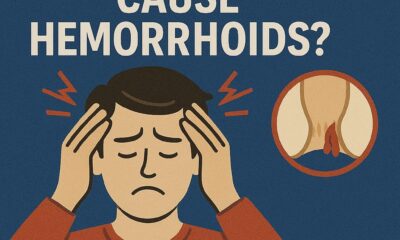
 General Health & Wellness3 months ago
General Health & Wellness3 months agoCan Stress Cause Hemorrhoids? Myth or Medical Reality?
-
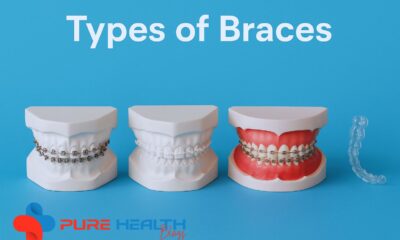
 Men & Women's Health2 months ago
Men & Women's Health2 months agoLatest Types of Braces: Unexpected Costs, Benefits & Best Treatments
-
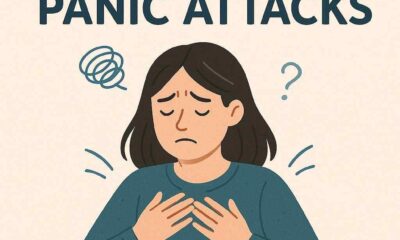
 Mental Health2 months ago
Mental Health2 months agoThe Silent Panic Attack Trap That’s Hurting Millions Now
-

 Diet & Nutrition3 months ago
Diet & Nutrition3 months agoRare Lemon Balm Benefits That Will Calm Your Mind & Heart
-
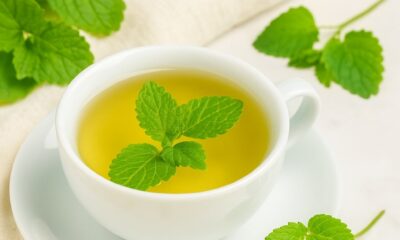
 Diet & Nutrition3 months ago
Diet & Nutrition3 months agoHow to Make a Lemon Balm Tea for Effective Weight Loss
-
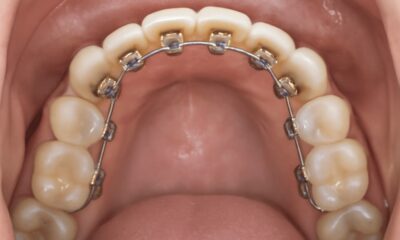
 Men & Women's Health3 months ago
Men & Women's Health3 months agoComplete Truth About Lingual Braces Costs, Benefits And Care
-
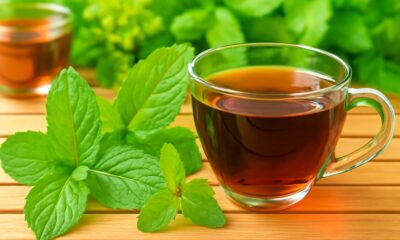
 Recipes3 months ago
Recipes3 months agoHow to Make Melissa Tea at Home: A Step-by-Step Guide
-

 General Health & Wellness4 months ago
General Health & Wellness4 months agoIs Your Unusual Heel Pain a Scary Serious Problem?

